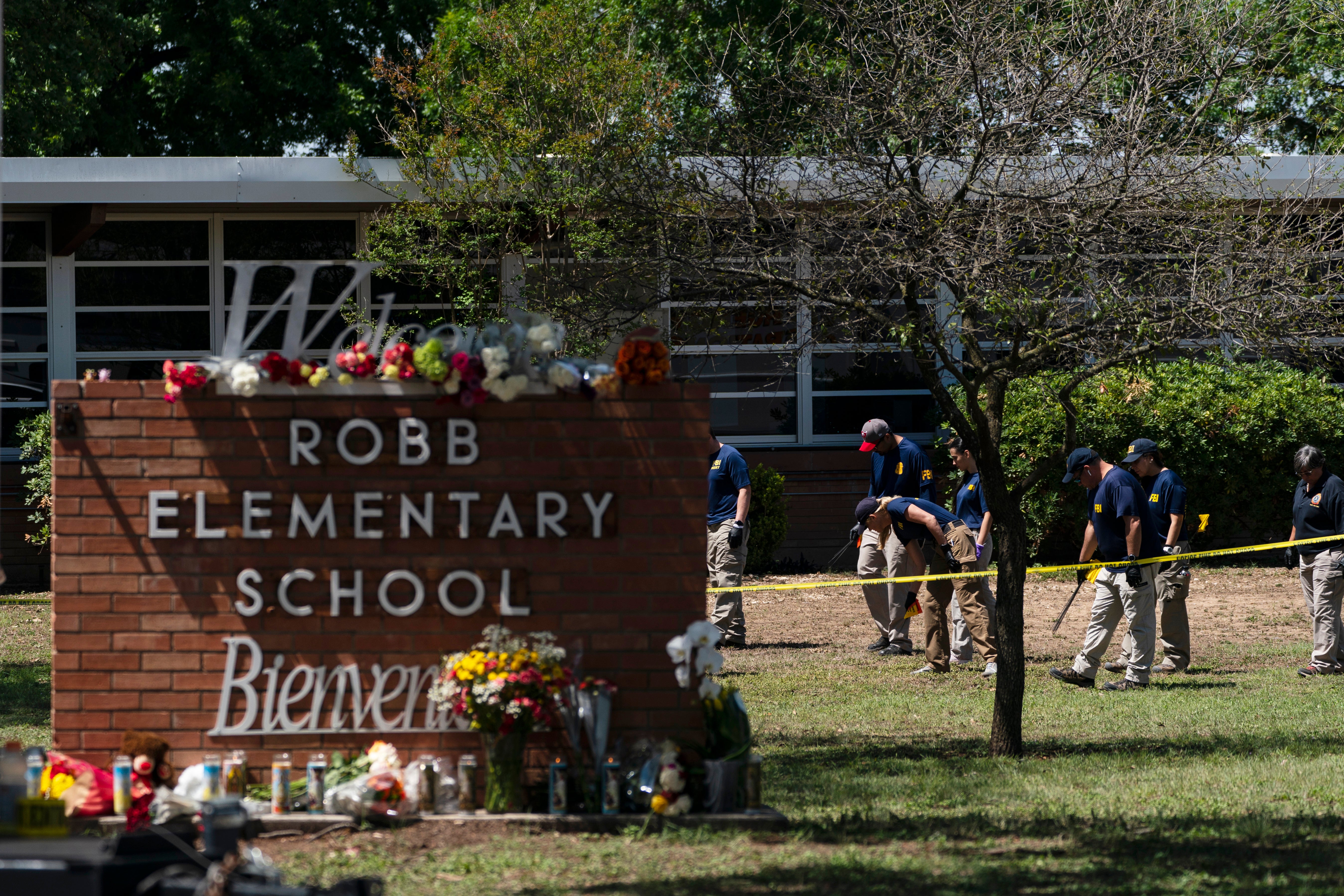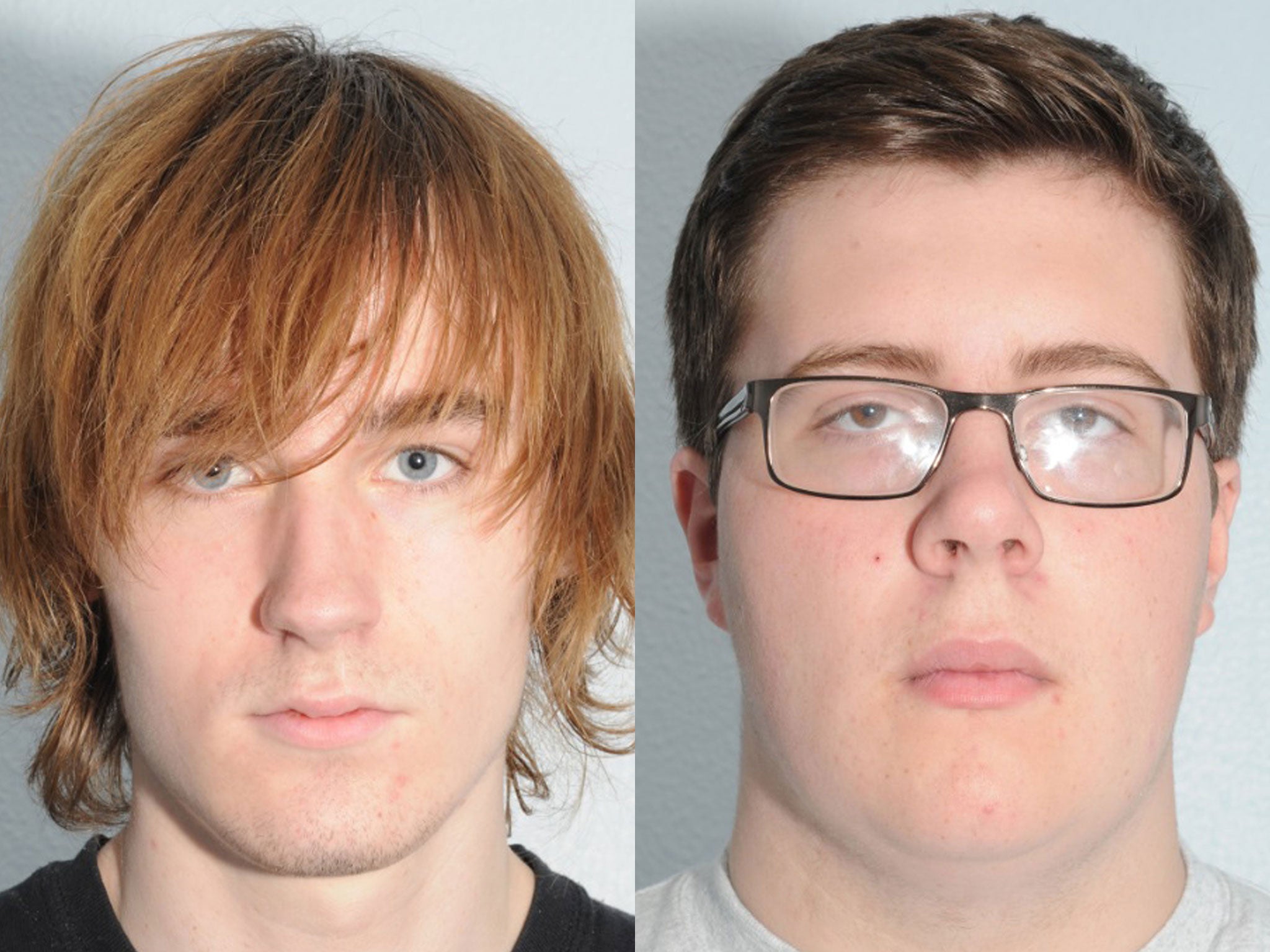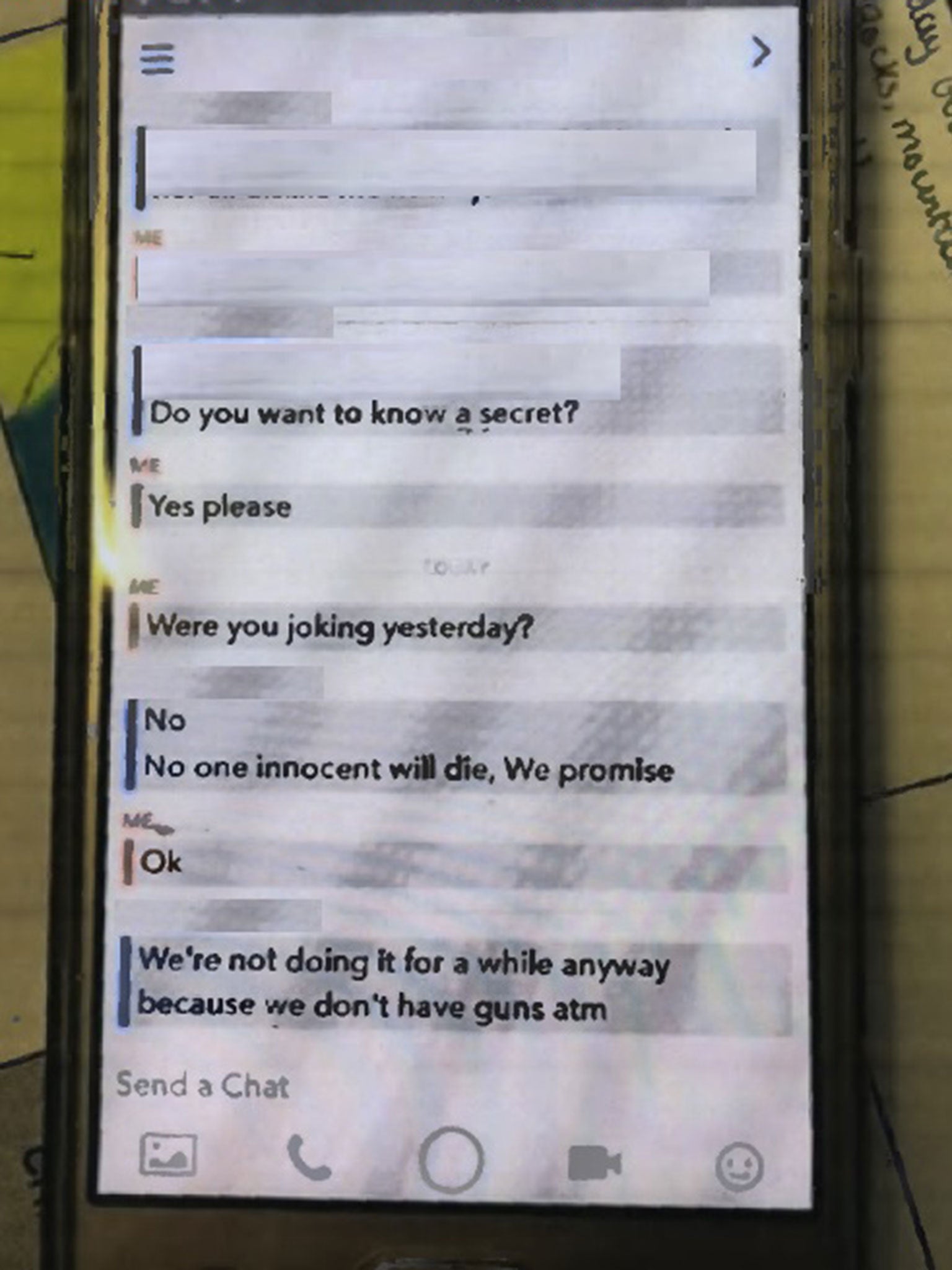
Young terror offenders in the UK are being inspired by school shootings in the US, with some wanting to commit mass murders themselves, counterterrorism police have warned.
The concerning trend has emerged alongside a steep increase in prosecutions of teenagers with neo-Nazi leanings over the past five years.
Earlier this month, a boy who claimed to be acquiring guns to commit an atrocity similar to the 1999 Columbine High School massacre was sentenced for terror offences.
The Darlington teenager, who is Britain’s youngest known terror offender, was aged just 13 when he wrote online that he wanted “to do a Columbine here”, while consuming neo-Nazi propaganda.

Dean Haydon, the senior national coordinator for Counter Terrorism Policing, said the consumption of material relating to school shootings had become a “trend” in terror cases.
“If people start consuming propaganda material in the terrorism and extremism space, they just want to consume everything. If it’s violent they want to consume it,” he told The Independent.
“If you look at people like Anders Breivik, Brenton Tarrant, the Buffalo shooter, they become icons in their own right, and heroes in their own community, particularly the right-wing community.
“Others then seek to emulate it, they consume that material, and you’ve got this copycat attack issue.”
Mr Haydon was speaking days after a gunman murdered 19 students and two teachers at an elementary school in Texas.
He said that British police were “live” to the possibility of copycat attacks, although mass shootings are rare in the UK.
“We’ve had the use of everyday items, knives and vehicles, and at the end of the day, if somebody wants to commit a terror attack they don’t have to have a gun,” Mr Haydon added.
“I’m glad to say the availability of guns is far more restrictive here.”
The senior officer said that police and the National Crime Agency were constantly working to prevent firearms being smuggled into the UK, and to take the guns and ammunition already in circulation off the streets.

In the Darlington case, the boy claiming to be planning a school shooting had not obtained any firearms and was not charged with plotting an attack.
His activity triggered a terror investigation, but the boy, who cannot be named for legal reasons, said his posts had been a “fantasy”, and he walked free from court this month after admitting possessing bomb manuals.
The teenager had researched school-shooting plots in the UK, including a 2018 case in which two boys were jailed for conspiring to carry out an attack at their North Yorkshire school.
Thomas Wyllie and Alex Bolland, who were just 14 at the time, drew up a hit list of targets including fellow pupils and teachers, and tried to obtain shotguns.
A judge said their plan “was not wishful thinking or fantasy, it was a real plot” to commit mass murder by “shooting them in a re-enactment of the Columbine massacre”.
Several other teenagers and young men prosecuted for far-right terror offences have also researched US school shootings and celebrated perpetrators online.
Those with a “fascination” for the subject include a boy who was jailed aged 17 in 2020 for plotting terror attacks on synagogues and other targets in Durham.

Another attack plotter, white supremacist Shane Fletcher, idolised the Columbine High School killers as “legends” and collected photos of them lying dead on the ground.
He told police that he had watched YouTube videos about mass shootings since the age of 13, after being arrested for planning a massacre in his Cumbrian home town in 2018.
Ethan Stables, a neo-Nazi who plotted an attack on a LGBT+ event aged 19 in 2017, had also conducted searches relating to the Columbine massacre, and had watched footage of the shooting.
Mr Haydon said counterterror police were seeing a rise in the number of suspects classed as having a “mixed or unclear ideology”.
“What we’re finding now is individuals across the spectrum going online, because of the availability of all sorts of horrendous material, and just experimenting and looking at all sorts,” he added.
“If you look at recent attacks around the world, you’ve got individuals who were posting about their attacks online as they were going to happen.
“That presents challenges for all of us ... we need to stop that material getting into circulation, because that does inspire others, and as a result we don’t want it on the World Wide Web.”







